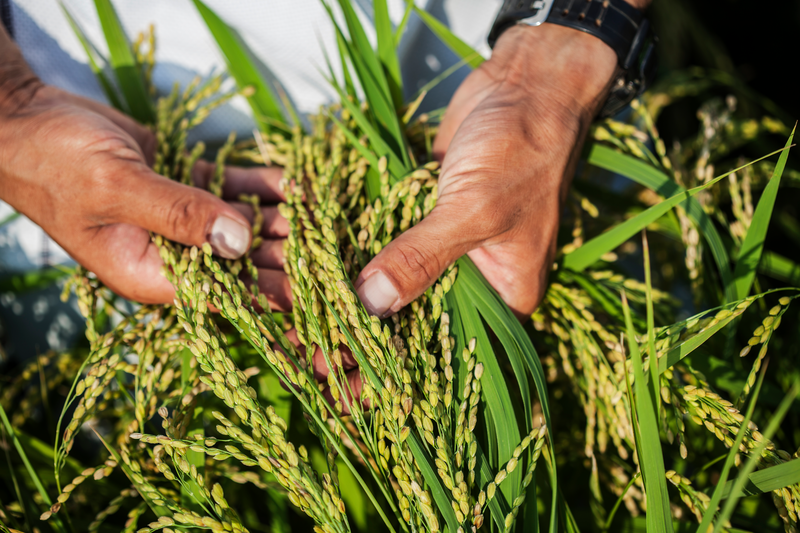Four Reasons Food Safety Is Not Just for World Food Day

Four reasons food safety is not just for World Food Day
When I used to sit down with friends and family to enjoy a meal together I didn’t think much about where the food I ate was coming from. All of that changed when I moved into a role leading a team that focuses on addressing some of the biggest food safety challenges facing the global food supply chain.
Last week, we recognized World Food Day (16 October) in honor of the date of the founding of the Food and Agriculture Organization (FAO) of the United Nations in 1945. This day is celebrated widely each year by many global organizations concerned with food security, including by World Food Programme (WFP) and the International Fund for Agricultural Development.
I am really proud of the programs underway by Mars and our partners to produce healthier, more affordable, easy-to-make meals that are sourced in sustainable ways. On World Food Day, I was also reminded of the important role of food safety in reducing food waste to make the best use of the raw materials available to us.
‘Food waste’ or ‘food loss’ – it makes a difference
Food waste includes food that is thrown out from restaurants or in homes perhaps due to big portion sizes or because it hasn’t been consumed before it expires or rots.
On the other hand, food loss is food that may be compromised at the point of production, processing or distribution – before it reaches consumers. It can also apply to raw materials destined for the food supply chain that are removed before going into production, for example, corn that is refused entry at the factory gates after testing positive for a toxin or a microbial contaminant.
By taking a proactive approach to food safety and addressing some of the longer term challenges impacting the global food supply chain, it’s possible to help reduce food waste and food loss, in turn improving food security.
So why does all this matter?
Food security is a major challenge facing global populations today, even though by most accounts we are losing or wasting nearly one third of all food produced. Which means we need to take a critical look at the way we source and transport food, especially for those of us in a position to lead the industry.
Here are some of the facts:
- Food safety, nutrition and food security are ‘inextricably linked’: The World Health Organization (WHO) states that: “Unsafe food creates a vicious cycle of disease and malnutrition, particularly affecting infants, young children, elderly and the sick…600 million – almost 1 in 10 people in the world – fall ill after eating contaminated food and 420 000 die every year.” [1]
- The United Nations (UN) anticipates that a significant change is needed within the global food and agriculture system in order to “nourish the 815 million people who are hungry today and the additional 2 billion people expected to be undernourished by 2050.” [2]
- Food waste and food loss are significant issues: According to the FAO, approximately 30% of food produced for human consumption around the world is either lost or wasted each year. This is the equivalent to 1.3 billion tonnes of food, USD 1 trillion in economic costs, around USD 700 billion in environmental costs and around USD 900 billion in social costs [3].
- A focus on food safety at the production and supply chain level is key: As well as “halving per capita global food waste at the retail and consumer level” the 12th UN Sustainable Development Goal highlights the ambition to “…reduce food losses along production and supply chains by 2030.” [4]
So what do we need to do?
At Mars we believe that if it’s not safe, it’s not food. Through our work at the Mars Global Food Safety Center and together with our many partners and collaborators we are committed to doing all we can to helping tackle some of the longer term food safety challenges impacting the global food supply chain, and do our part to limit waste and loss.
Taking this approach is not only about helping ensure safe food, it can also support all our efforts to ensure the efficient use of our planet’s limited resources. With a growing global population and climate change making our ability to grow crops ever more challenging, a sustainable approach is more important than ever.
[1] https://www.who.int/news-room/fact-sheets/detail/food-safety
[2] https://www.un.org/sustainabledevelopment/hunger/
[3] http://www.fao.org/policy-support/policy-themes/food-loss-food-waste/en/

